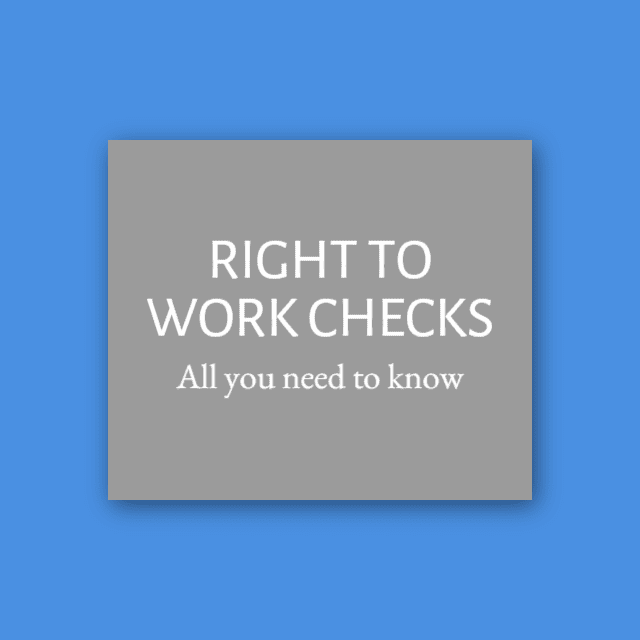Confused by Right to Work checks? It’s not surprising. With frequently changing legislation, it can often feel like a full time job just to keep up. People Matters HR is a leading HR consultancy in the North West. We understand the challenges employers face in staying current with right-to-work check procedures. The guidance in this area constantly evolves. Consequently, it can be difficult for employers to stay informed.
On 1st October crucial changes to the UK’s Right to Work legislation became law. It is imperative that every UK business, regardless of size, accurately checks each employee’s right to work in the UK.
Failure to conduct the correct right to work checks can have severe consequences. Businesses can incur a fine of £20,000 causing huge financial loss and damage to reputation. In more serious cases, a 5-year prison sentence could result if you’re found guilty of employing someone. This is applicable when you knew or had ‘reasonable cause to believe’ they did not have the right to work in the UK.
The IDSP changes are applicable to UK and Irish citizens only. To use the IDSP they must have a valid in-date passport. If they do not have this, a manual check must be completed with acceptable documents. What’s more, conducting a check may be sound straightforward. However, with over 200 combinations of different documents, it can be difficult to negotiate. One common misconception is that Driving Licences are not an acceptable form of right to work evidence.
In-Person Right-to-Work Checks
If an employer is unable to complete RTW checks online or manually for an individual, they can use the Home Office Employer Checking Service. This service is only available if the individual gives permission. It is subject to completion of the Employer Check Service form which is available online.
The Home Office online checking service remains a free option for verifying the right to work in the UK for Non-UK/Irish citizens. This involves using a share code, applicable to individuals with a Biometric Residence Permit (BRP), Biometric Residence Card (BRC), Frontier Work Permit (FWP) and Pre-settled and Settled status under the EU Settlement Scheme. For Non UK/Irish citizens who cannot provide a share code at the time, a manual check can be made using documents from List B of the Home Office RTW checklist. This falls under the time limited statutory excuse.
People Matters HR clients can rest assured that we’re here to handle all these checks on their behalf. We’ve partnered with a certified Identity Services Provider (IDSP) to assist our clients by conducting digital identity checks on their behalf.
Here are the basics you need to know:
The changes
In April 2018 the Home Office launched its Right to Work Checking Service which enabled employers to carry out online right to work checks on individuals. During the pandemic, face-to-face checks were no longer feasible. To enable businesses to continue recruiting, the government adjusted the process, allowing remote checks to be conducted. This was practical but increased the chances if fraudulent documentation being used – and so changes had to be made to mitigate this risk.
From 1st October
As of now, employers need to complete their Right to Work checks either in person or put in place appropriate alternative processes and systems with a certified Identity Services Provider (IDSP) that performs digital identity checks on behalf of an employer for individuals who are not eligible to use the Home Office online services.
How can businesses stay compliant?
- Carry out a manual check via a face to face meeting and check and copy of documentation
- Appoint a certified IDSP to complete digital Rights to Works checks. Manual identity checks will still be permitted for applicants from the UK and Ireland, but checking an applicant’s right to work remotely must be done through an Identity
Service Provider
- The government’s Employer Checking Service continues for Right to work checks online
- Records need to be kept for up to two years after an employee leaves the business
- Employers need to ensure the checks are maintained and remain valid
Employers must not show less favourability to any employee lacking a valid passport or opting not to use an IDSP for identity verification. In such cases, employers must offer alternative methods for proving Right to Work and perform a manual document-based check.
People Matters HR haver partnered with a certified Identity Services Provider (IDSP) that performs digital identity checks on behalf of employers. People Matters HR operate as an outsourced HR consultant for SMEs across the North West.
